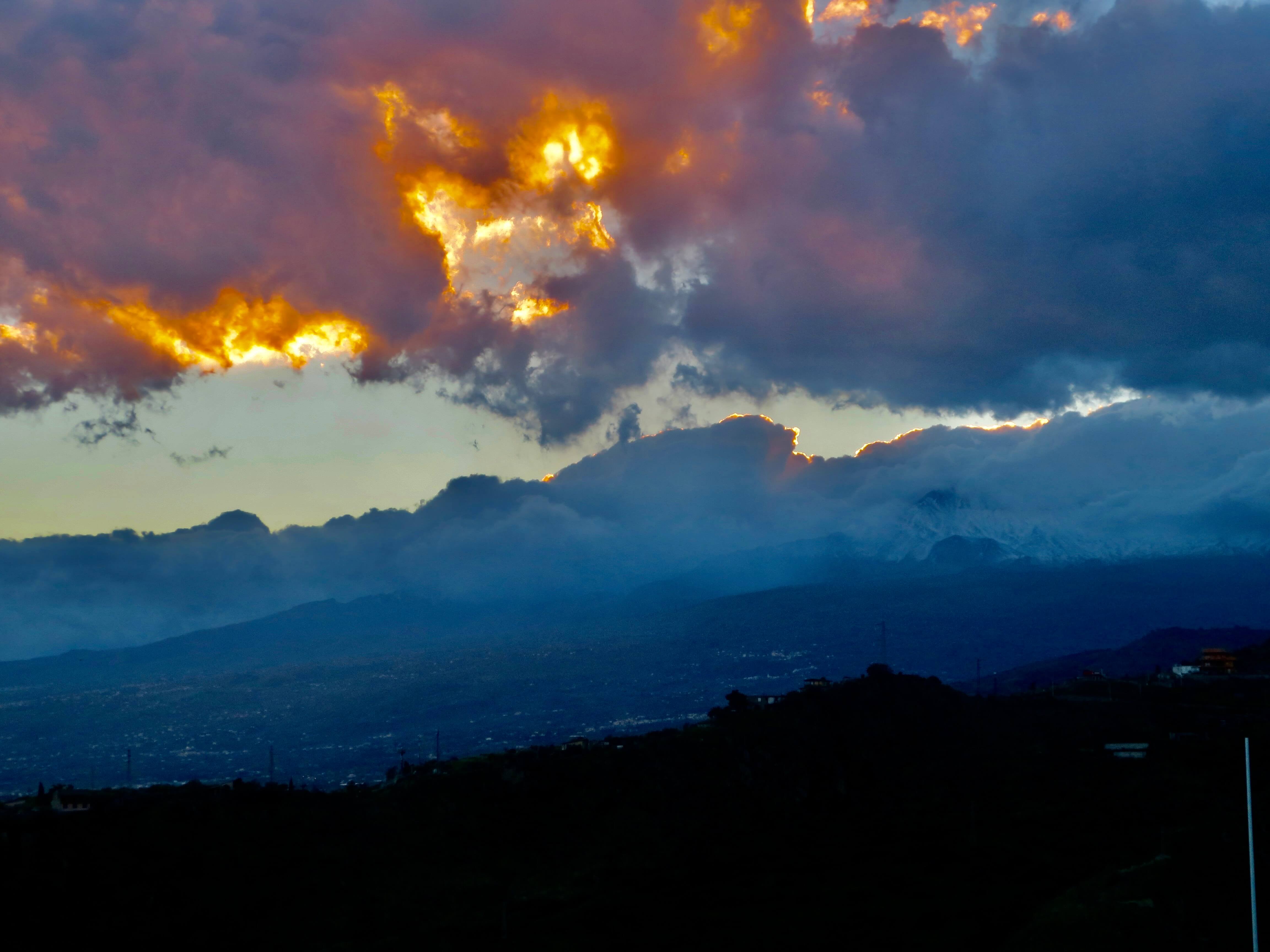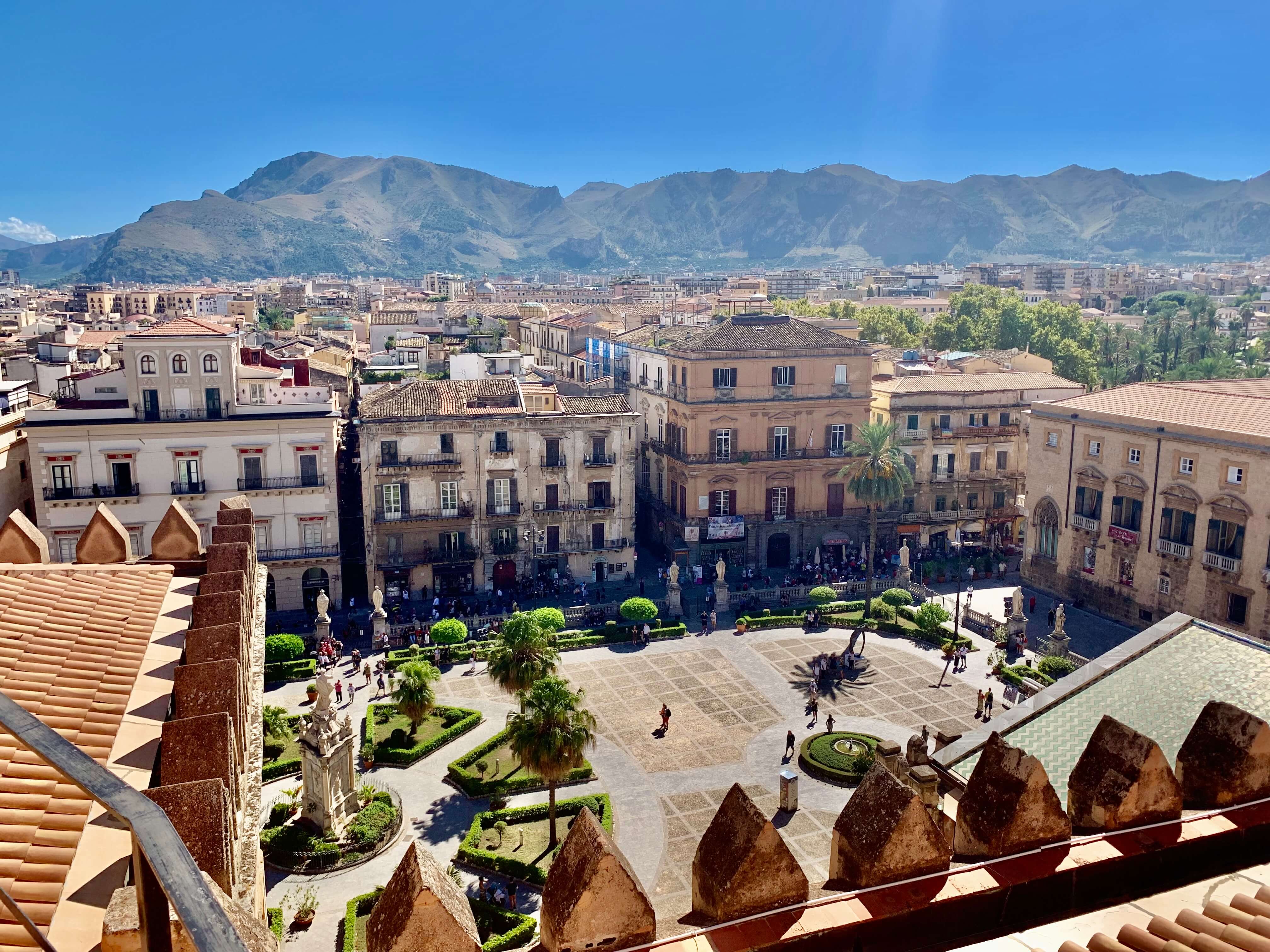- Home
- Best Time to Visit Sicily
plan your trip: the best time to visit sicily depending on your interests
Sicily is the largest island in the Mediterranean Sea. It is known for its beaches, rich history, and vibrant culture. So, when is the best time to visit Sicily? It all depends on what you are most interested in doing there.
The weather in Sicily is mild, even in winter, and temperatures rarely drop below 10 C on the coast. In winter, the weather is more cloudy and chilly. Still, there are many sunny days even then.
Spring and autumn in Sicily offer a comfortable climate, with plenty of sunshine and warm temperatures. These are ideal times for those interested in historical sites, hiking or such to explore the island.
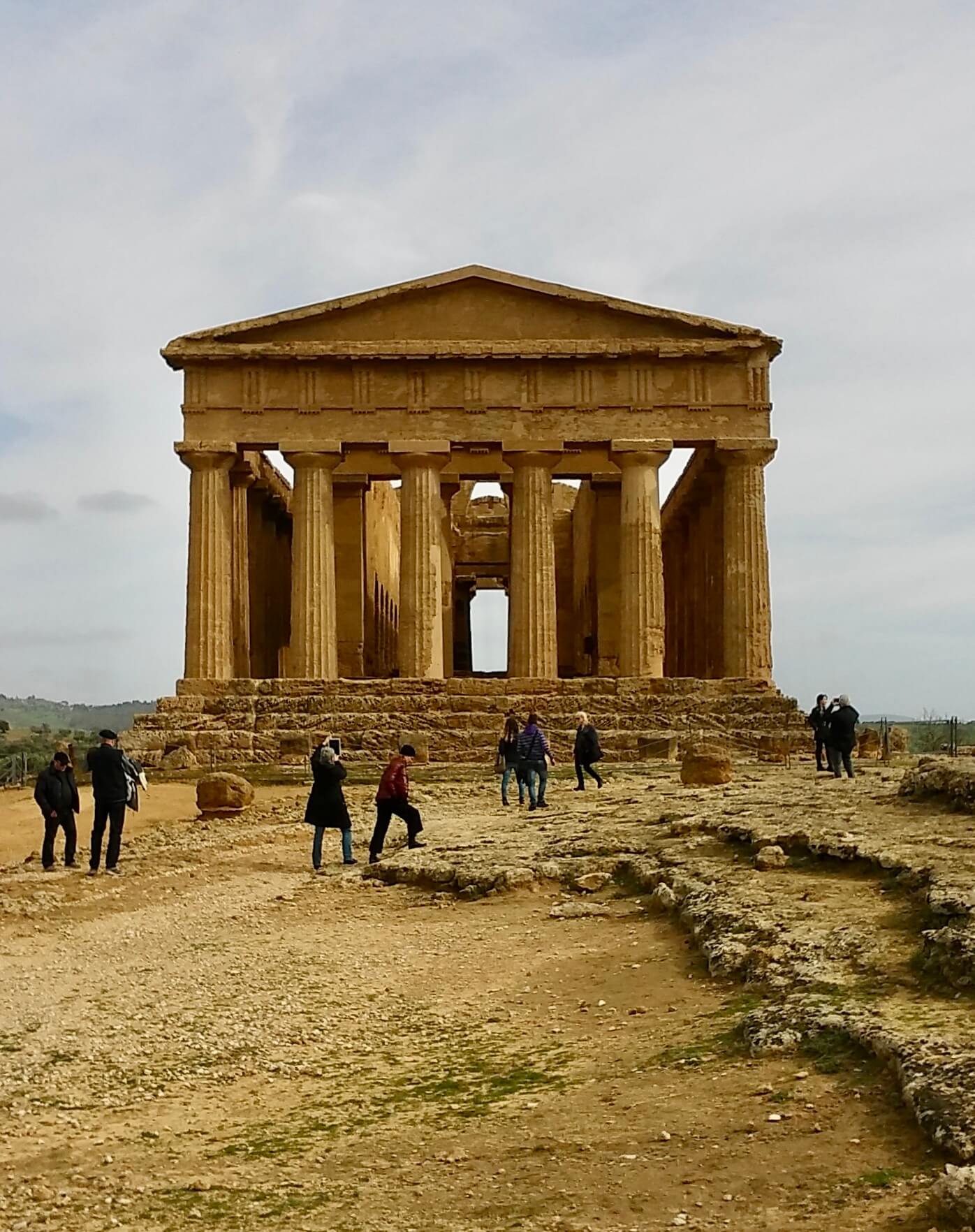 Places like Agrigento's Valley of the Temples are just as good in winter. This picture was taken in January. The temperature was around 15 C, and no crowds.
Places like Agrigento's Valley of the Temples are just as good in winter. This picture was taken in January. The temperature was around 15 C, and no crowds.So, whether you're looking to lounge on the beach, experience the festivals, or explore historical sites, here's my guide to the best time to visit Sicily.
The Best Time to Visit Sicily for Beach Lovers
If you're heading for the beaches, the best time to visit Sicily is the summer. That's when the weather is warm and sunny - a perfect time for swimming and sunbathing.
The beach season in Sicily starts in June and ends at the end of August. Still, the sea remains warm, and the sun usually shines up to the end of October.
In June, beaches start to fill up, mostly on weekends.
August is the hottest month. It is also the most popular holiday month in Italy, when beaches are full, and prices are at their highest.
July is also a popular month at the beaches.
Consider June or September if you want more reasonable temperatures, fewer crowds, and lower prices.
Some of Sicily's most famous beaches are San Vito lo Capo and Mondello near Palermo. An hour's drive east of Palermo is also Cefalu, a popular destination with lots of local charm.
In the south, there are lots of good beaches, including those near Agrigento - like the famous Scala dei Turchi.
In the east, the center of beach tourism is around Taormina, but there are many beaches south of Syracuse, as well.
During the high season, you should book everything well in advance.
Check my Best Beaches in Sicily page for more information on some of the best beaches. Just remember, Sicily has 900 kilometers of beaches - more than all of mainland Italy combined - so they can be found anywhere. And there is really no way to tell which ones are the best.
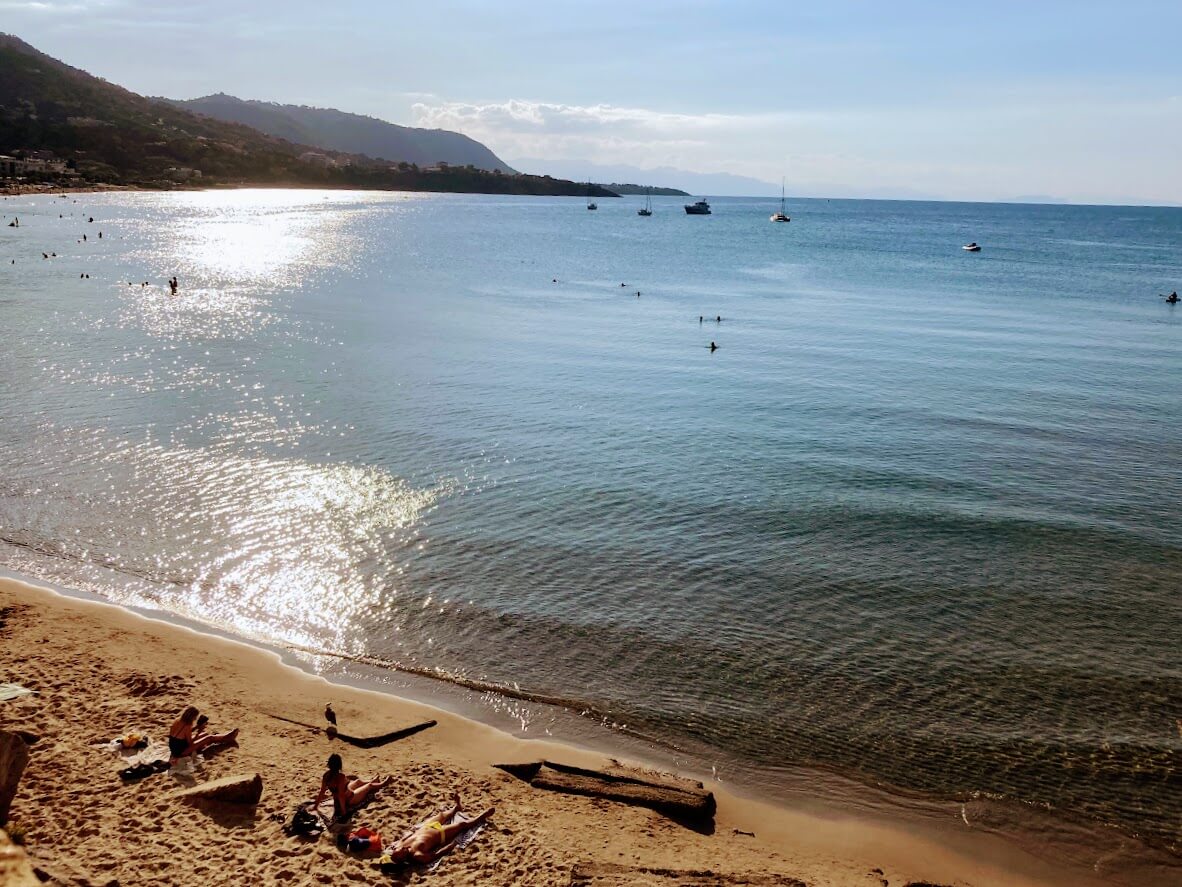 Cefalu Beach.
Cefalu Beach.The Best Time to Visit Sicily for Festival Goers
Sicily's festival season is year-round, offering various cultural experiences every month.
A large number of Sicilian festivals focus on local history or biblical events. These culminate during Easter week, which is a big event throughout Sicily.
Easter includes processions and theme plays throughout the island. Easter also marks the opening of the season for many businesses.
Some of the most spectacular Easter celebrations are in Trapani, Enna, Scicli, Lipari, and Erice.
However, the spring festivities start already in February. That's when almonds blossom in Agrigento.
The Almond Blossom Festival celebrates these flowers, the arrival of spring, and the harmonious coexistence between different peoples.
In May, it is Noto's turn to celebrate. The Infiorata includes many kinds of happening. The main event fills Via Corrada with works of art made from flowers.
May also sees the launch of classical plays in Syracuse. It is a rare opportunity to see these plays in their original setting. The performances at the archeological park continue for a month until mid-June.
The Taormina film festival is in mid-July. Go there to spot some Hollywood celebrities and other creams of the crop.
Palermo's biggest festival is Festino di Santa Rosalia in July. It celebrates the city's patron saint. The festival culminates in a procession of the Rosalia's relics around the city, followed by a fireworks display.
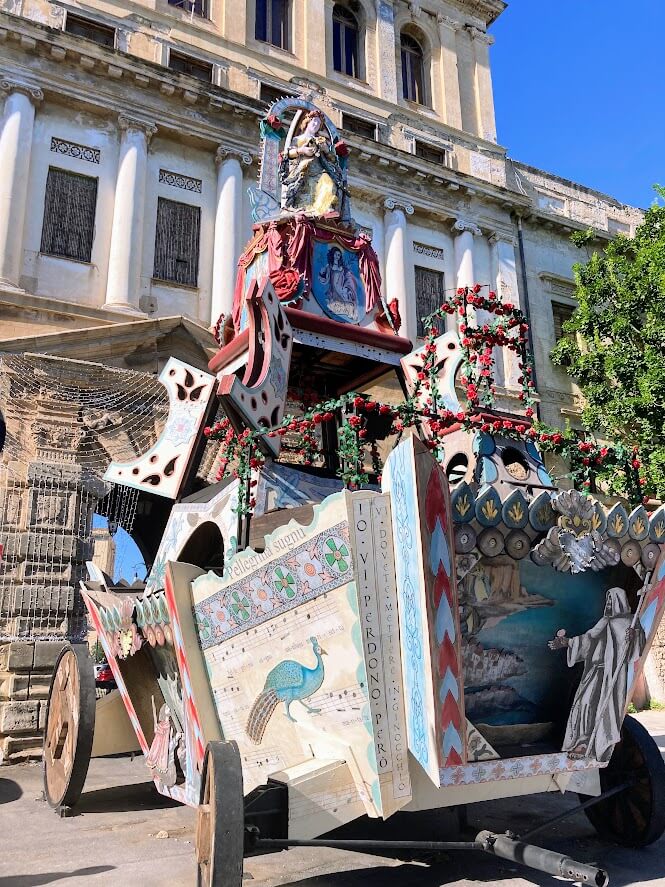 The cart from the procession of Santa Rosalia in Palermo.
The cart from the procession of Santa Rosalia in Palermo.The biggest festival in whole of Italy is Ferragosto, which is on 15 August. It is a bit like Midsummer's Eve in northern countries.
In ancient times, Ferragosto celebrated Roman gods. Now, it celebrates Christ's ascension to heaven.
It is much more than just a religious event, though. It is a national holiday when people go to beaches and mountains. In the cities, many shops are open only on a limited basis.
All around Sicily, September is a time of harvest and related festivities. One of the most popular is the pistachio festival in Bronte, on the slopes of Etna.
In December, the island starts to prepare for Christmas. Museums and other places may be open for limited hours.
In December, Many Christmas markets are held. Some of the most famous are in Agrigento, Catania, and Erice.
For more on festivals in Sicily, see HERE.
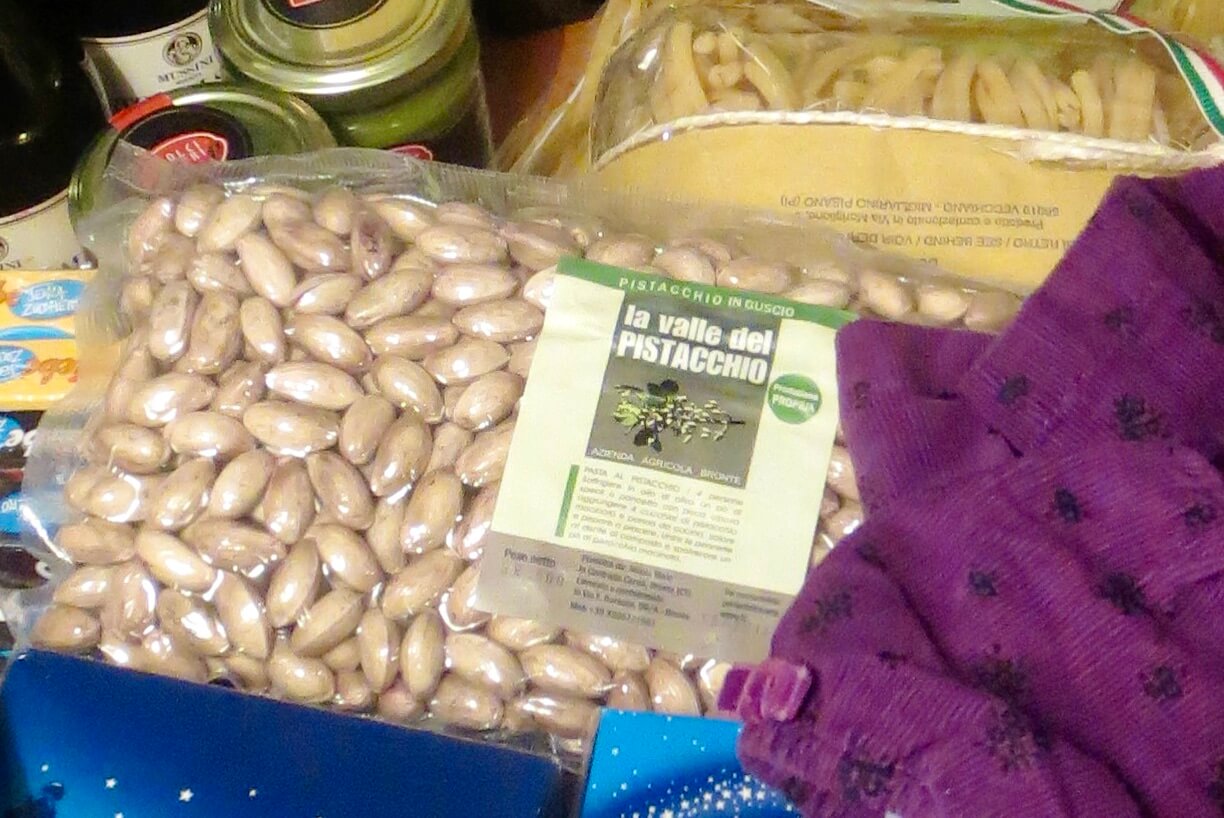 Bronte is the pistachio capital of Sicily, so if you go there, be sure to buy some.
Bronte is the pistachio capital of Sicily, so if you go there, be sure to buy some.The Best Time to Visit Sicily for History Buffs
If your main interest is history, the best time to visit Sicily is spring or fall. That's when the weather is sweet, but the crowds are smaller.
From April to early June and September to October, temperatures hover around 20-25 C (68-77 F). Given the possible rainfall, spring is an even better time to visit outdoor destinations than autumn.
For example, April is a pleasant time to tour ancient temples and ruins. It is not very crowded, and the weather is warm.
Whatever the time of year, the first Sunday of every month is free. It applies to all state museums, galleries, parks, gardens, and archaeological parks.
Spring and autumn are good times to visit places like Agrigento's Valley of the Temples and the ancient ruins of Segesta and Selinunte.
Other good sites include the archaeological park of Syracuse, the baroque towns of Ragusa, Noto, and Modica, and the hilltop town of Erice.
Even in the off-season, the winter, historical sites offer a unique and uncrowded experience, provided you dress appropriately for the weather.
In addition to ancient sites, Sicily is home to numerous historical museums, palaces, and churches that are well worth visiting.
The Best Time to Visit Sicily for Food Lovers
For the food lover, Sicily offers enjoyment all year round. In winter, however, the serving is a bit more limited. For example, street kitchens and outdoor eating can be out of the picture.
The best time for food lovers to visit Sicily is spring and autumn. Starting from April, the sun shines, and the weather gets warmer. You can already eat outside.
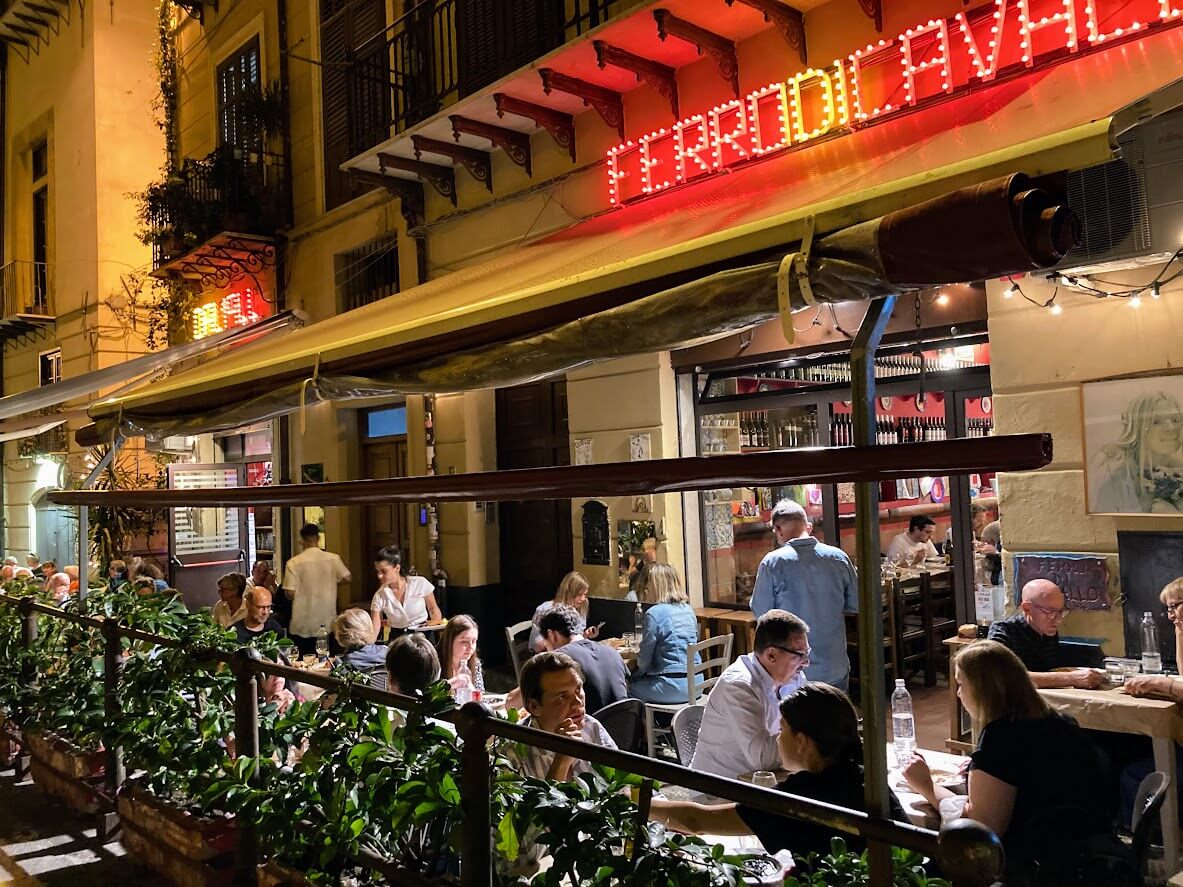 Eating out in Palermo.
Eating out in Palermo.September is especially the time for harvesting and related food festivities in Sicily. One of the most popular harvest festivals is the pistachio festival in Bronte.
In October, the weather is still moderately warm. The wild mushroom season culminates in the Funghi Fest in Castelbuono. It's a must-see for any mushroom enthusiast.
November is the start of the post-harvest wine season. Wine lovers can compensate for the lack of sun and heat with the pleasures of wine tasting.
From April to October, there are also street kitchens and food markets.
Palermo and Catania, in particular, is known for its street food scene and food markets. However, you can also find them in many smaller towns.
The Best Time to Visit Sicily for Outdoor adventurers
If you are interested in hiking, cycling, and nature, spring or autumn is the perfect time to travel to Sicily. The weather is warm and sunny. There's not too much heat, and the rains don't interfere with outdoor activities.
If you want to ski, head to Etna, the Madonie mountains, or Monte Mufara in January. The ski season is then at its peak there.
The best time for hiking in Etna is May, September, and October. The weather is warm, but there are not too many people. The best time of day is early morning, so the clouds don't obscure the view.
For hiking in nature reserves, the best time to go is spring. The weather is already warm, nature is in full bloom, and the scenery is at its most beautiful.
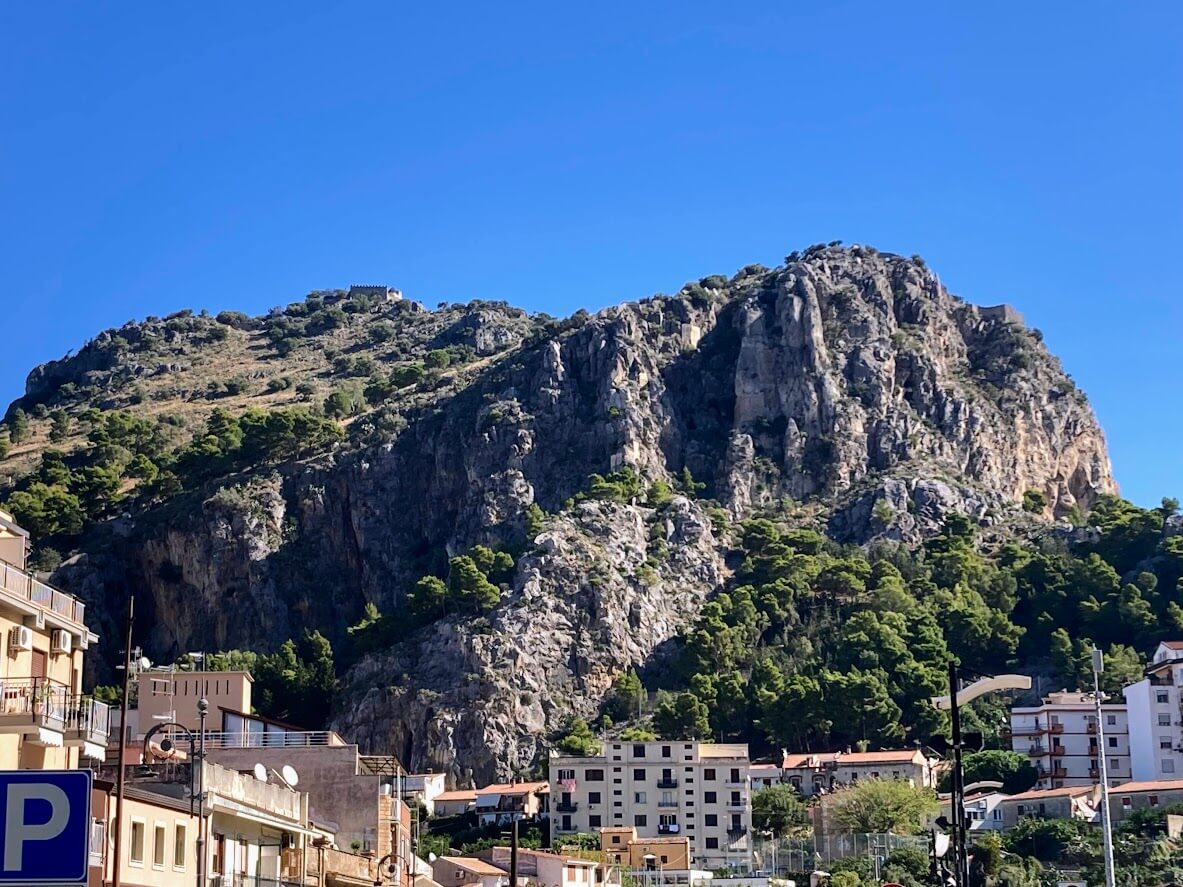 In Cefalu, you can combine beach life with hiking up to La Rocca, as this hill is called. It's right next to the old town which is next to the beach.
In Cefalu, you can combine beach life with hiking up to La Rocca, as this hill is called. It's right next to the old town which is next to the beach.Spring on the main island starts as early as March. The weather warms up, the rains decrease, and the first flowers bloom.
In the islands off the coast of Sicily, the best times for hiking are April, May, and September.
In June, even the outermost islands start their season. The ferry service changes to a summer schedule, and the number of visitors increases. If you want to avoid the crowds, you should visit before then.
Autumn arrives earlier on the outer islands than on the main island. By October, the winds and rain are already there. On the main island, October can still be fine weather.
If you want to avoid the crowds and are looking for lower prices, you can go earlier in spring or autumn—especially if you don't mind a little wind or rain.
By December at the latest, the outdoor season is over in all parts of Sicily.
Conclusion
The best time to visit Sicily depends on what you plan to do. There's always something to do all year round.
However, there are peak seasons for different things to do. In summer, the heat and constant sunshine can affect physical activities. Some shops in towns and cities can also be close then.
In winter, there is more rain and lower temperatures. If you're doing outdoor activities in winter, dress accordingly.
In general, spring and autumn are the best times to visit Sicily. For a beach holiday, consider summer or early autumn.
Winter sports, like skiing, can also be practiced. The ski season is at its peak in the mountains in January.
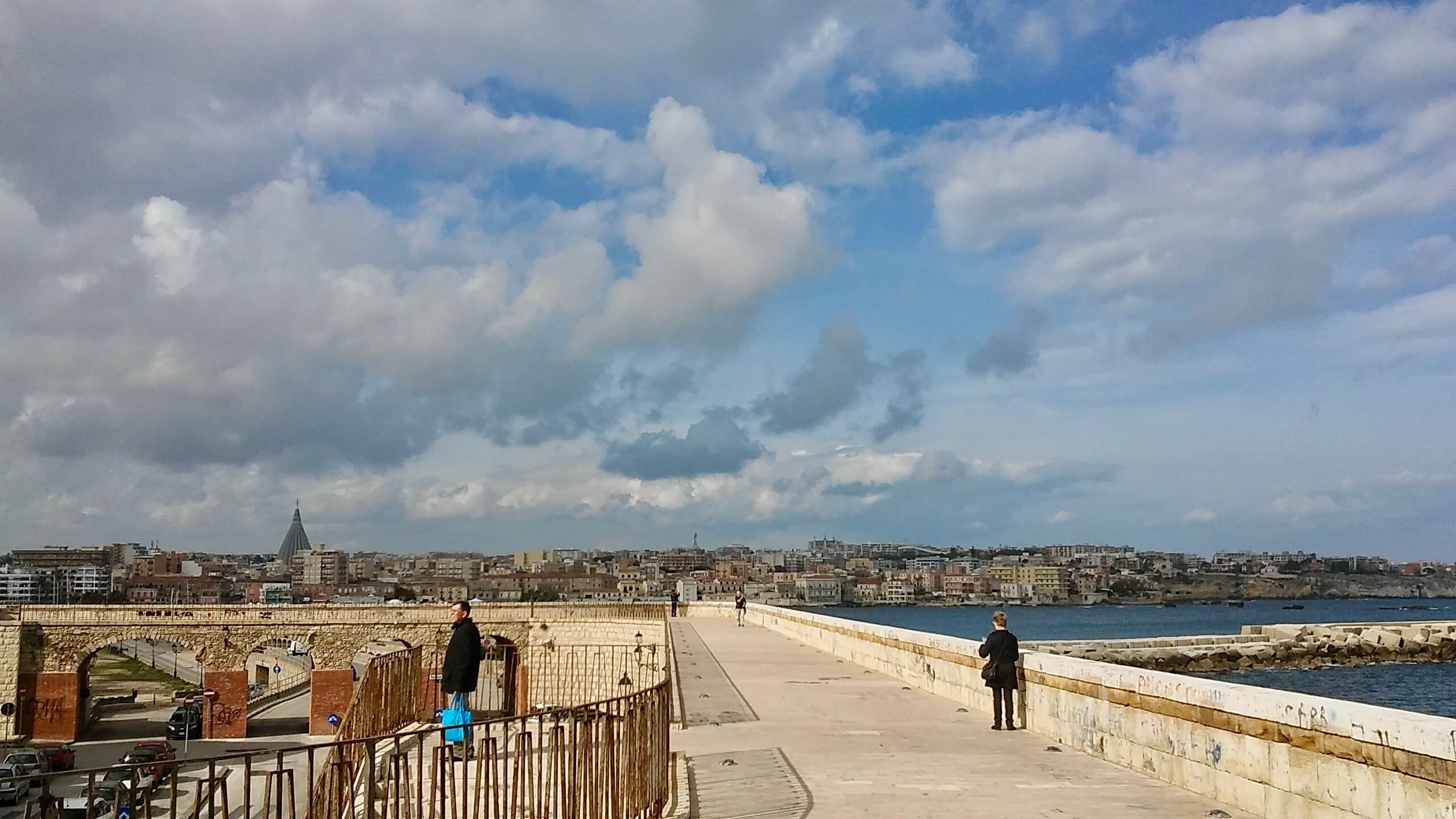 Syracuse in February. Not too cold. On sunny days quite warm, actually.
Syracuse in February. Not too cold. On sunny days quite warm, actually.(This page last edited: 18. December 2024)
Recent Articles
-
Sicilian Food - Rich Flavors, Endless Passion
Apr 09, 25 09:54 AM
All you need to know about Sicilian food, its ingredients and history. -
Things to Do in Palermo - Tips for a Perfect Holiday
Apr 05, 25 04:27 AM
Things to Do in Palermo - From historic landmarks to delicious food, this guide has it all. -
The Story of Tommaso Buscetta: From Mafia Boss to Key Witness
Mar 30, 25 05:12 AM
Tommaso Buscetta built Sicilian Mafia into a global empire - which he then destroyed.
Follow MANY FACES OF SICILY on Facebook, Instagram, Bluesky & Pinterest
Contact: vesa@manyfacesofsicily.com
